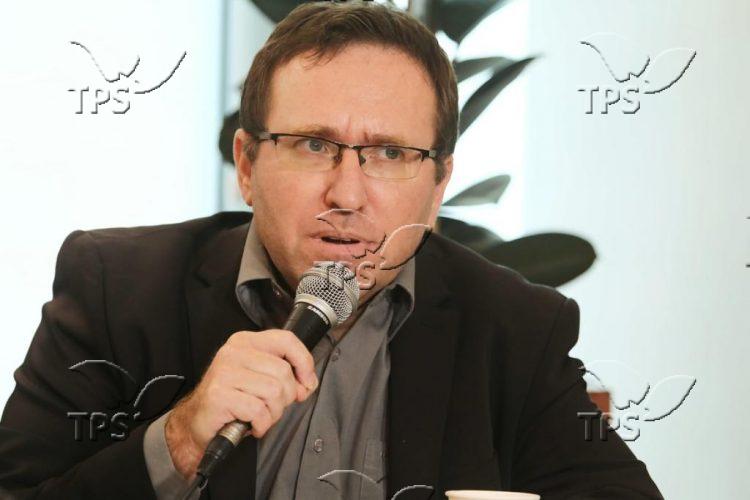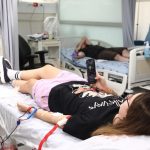Families of Israeli Hostages Fear for Loved Ones’ Lack of Medication
Jerusalem, 19 October, 2023 (TPS-IL) -- The families of Israel’s hostages have raised their profile, being vocal in their criticism of an Israeli agreement to allow humanitarian deliveries of food, water and medicine into Gaza. Prime Minister Benjamin Netanyahu’s commitment on the deliveries was made to US President Joe Biden on Wednesday, but the 203 families are angry that Israel received no concessions.
It’s been 12 days since the Hamas terror organization attacked Gaza-area communities, taking at least 203 hostages, ranging in age from nine months to 90 years-old. Adding to the uncertainty, the families have received no sign that their loved ones are alive. Hamas released one video of a hostage on Monday, but it wasn’t clear when it had filmed.
The most immediate worry of the families is medication.
“My aunt Adina is sick, she is a 72-year old woman, she has heart issues, a pacemaker implanted, she is in need for blood thinning medications. She needs the help now,” Revital Miles told the Tazpit Press Service. Her aunt, Adina Moshe, was abducted from her home in Kibbutz Nir Oz. The terrorists managed to break into a safe room where Adina and her husband, Said, had been hiding for 10 hours.
They killed Said in front of Adina.
Miles said his aunt was last seen being dragged off towards a motorcycle.
Prof. Hagai Levine, an Israeli public health physician who volunteers as the head physician at Bring Them Home Now, revealed in a report that many hostages are suffering from a range of medical conditions, including diabetes, malignant diseases, heart failure, chronic kidney disease, Parkinson’s disease, Alzheimer’s disease, dementia, autism, autoimmune diseases, asthma, and more.
Other hostages have psychiatric disorders and are in dire need of antidepressants, antipsychotics, and sedatives.
Bring Them Home Now, an organization representing the families of the captives, also sent a letter to the International Committee of the Red Cross which included a list of more than 100 different prescription medicines the hostages were taking daily, and even noted a need for baby formula.
Meanwhile, a preliminary medical report submitted to the International Committee of the Red Cross (ICRC) outlining the hostages’ medical needs also noted that many were also injured during their abductions. Without immediate care, those injuries could fester.
The video, of 21-year-old Miya Shem, raised Israeli ire. It began by showing the French-Israeli national lying down as someone wrapped a bandage around her right arm. The video then cut to Shem speaking directly to the camera identifying herself, saying she was operated on for three hours for an injury to her hand.
“They’re caring for me, they’re treating me, they’re giving me medication. Everything is okay,” she said. “I’m only asking for me to be returned home as soon as possible, to my family, to my parents, to my siblings. Please get us out of here as soon as possible.”
But Shem’s mother, Keren, criticized the video, saying, “I see that she is in pain, scared, saying what she is told to say.”
Mayan Zin, whose husband and two daughters, ages eight and 16, are also being held in Gaza, told TPS, “The international community has to send someone there to check on them, there are wounded people there. My ex-husband is wounded, they shot him in the leg. Someone has to reach out to the people held as hostages. They have done nothing wrong to anyone.”
Israel has been striking Hamas targets in the Gaza Strip since an October 7 assault by Hamas on Israeli communities near the Gaza border that caught Israelis off-guard. Fighting raged for days as the IDF initially struggled to clear out the terrorists. More than 1,400 Israelis were killed and over 4,600 more injured.







